Expert Relapse Prevention Services in Michigan
Relapse Prevention
How to Avoid Relapse
Overview
If you or a loved one is navigating the complex journey of recovery from drug or alcohol abuse, understanding the importance of relapse prevention programs is crucial to long-term sobriety. At Liberty House In Michigan, these programs form an essential pillar of our comprehensive care for long-term sobriety and health. A relapse prevention program is designed to educate and arm you with a tailored plan that addresses factors such as removing triggering substances from your environment, mastering calming techniques, and reaching out to a support network. With a focus on relapse prevention at Liberty House, individuals are equipped with the tools needed to manage triggers and stress successfully.
In addition to in-program relapse prevention, aftercare support is offered to ensure a smooth transition into everyday life post-treatment. It acts as a cornerstone in relapse prevention, offering ongoing therapy and assistance ranging from medical to peer support. By learning relapse prevention strategies, you’ll be better prepared to identify the warning signs of potential drug relapse and take proactive steps to counteract them.
We believe in holistic, well-rounded care that provides long-term support for individuals who are struggling with or have struggled in the past with substance abuse. Our comprehensive treatment programs in Michigan recognize this and customize relapse prevention strategies, ensuring you’re prepared with the resources to maintain your progress in recovery.
REQUEST A 100% CONFIDENTIAL CALLBACK
Change Your Story
*WE CURRENTLY DO NOT ACCEPT MEDICAID OR MEDICARE.
Explore Our Individualized Services
Substance AbuseTreatment Services
Detox Center in Michigan
Residential Treatment
Unique Therapies
Substance Abuse
Alcoholism
Dual-Diagnosis
Understanding Relapse
What is a Relapse in Addiction Recovery?
At the heart of your journey toward recovery is understanding what a relapse in recovery truly means. In simple terms, relapse signifies a worsening of substance use after a period of improvement or abstinence. Relapse can occur in a variety of diseases, much like other chronic conditions such as asthma or hypertension, with relapse rates affecting 40-60% of individuals. It’s integral to grasp that relapse is often a standard part of the recovery path, especially in the initial stages.
Imagine your recovery as navigating a path with potential hurdles. A lapse may represent a brief stumble or a momentary loss of balance, while a relapse can be likened to falling and finding yourself off the path with a return to substance use. Getting back on your feet requires a new set of coping patterns, a reflection on what caused the fall, and adjusting your relapse prevention strategies accordingly. Factors that can lead you towards such a setback range from personal struggles, environmental pressures, past trauma, and physical health concerns.
Along with physical relapse, there is the concept of mental relapse, where part of you wants to use, while the other part resists. Triggers such as stress, places, or people associated with previous use, emotional upset, or significant life changes can initiate a chain reaction that may lead to a relapse. While relapse is common and does not mean a failed recovery, it can be avoided with the right tools and approach. Mastering relapse prevention strategies is a vital tool in your recovery to proactively identify triggers and respond healthily.
Treatment options such as behavioral therapies, intensifying personal therapy sessions, and incorporating relapse prevention classes can all ensure you are equipped with the skills and resilience needed to avoid a pattern of relapse.
How we approach relapse prevention
Key Components of Effective Relapse Prevention Programs in Michigan
Embarking on the journey of recovery involves setting up a robust relapse prevention program, and a key part of that is creating a dynamic Relapse Prevention Plan (RPP). Think of it like crafting a personalized roadmap that guides you through the ups and downs of staying sober, pointing out safe routes, flagging potential challenges, and getting you ready for any unexpected bumps along the way. When you’re putting together your RPP, it’s important to work closely with your therapist or care team. This ensures that your plan grows and changes with you, adapting to your evolving needs and situations.
At the heart of relapse prevention is understanding that recovery from substance use disorder (SUD) is a marathon, not a sprint. It’s a long-term journey that requires ongoing attention because substance use can leave lasting changes in your brain, making you vulnerable to relapse at different points in your life. That’s why it’s crucial to break down relapse into its stages: noticing the early signs of emotional relapse, dealing with the mental struggles, and being mindful of the physical relapse that could undo your progress. The professionals at Liberty House in Michigan are highly trained and experienced in working with clients to create personalized relapse prevention plans, and tailor services to address underlying stressors and triggers that could impact recovery.
Some key components of a relapse prevention plan include:
Identifying and Managing Triggers
Understanding your personal triggers and mental challenges that may lead to substance abuse can help you map out the areas of your life you need to
Emotional Relapse
Learning to keep emotions in check by adopting self-care routines and being wary of risk-taking behaviors can help prevent emotional relapse.
Mental Relapse
Arming yourself with clear decision-making skills will combat the internal debate on substance use.
Physical Relapse
Developing a safety net for when you’re on the edge, such as calling a trusted friend or attending a support meeting, can protect you from physical relapse.
Continuous Care and Support:
Cultivating a supportive environment with a group or individual counseling and taking part in activities that promote mindfulness will help you feel supported during your recovery. In addition, taking an active role in your recovery by mentoring others can simultaneously reinforce your own resolve and purpose.
Overcome Cravings with Effective Techniques
Learning to employ mindfulness to accept and move past cravings without judgment.
Emergency Exit Strategies:
Designing escape plans for high-risk scenarios, such as social gatherings where substances will be present, can ensure you do not expose yourself to situations that could impact your sobriety.
It’s essential to keep updating your relapse prevention plan to match your current situation and to know when the times are roughest. Since about two-thirds of relapses happen in the first six months of recovery, staying vigilant during this time is very important. By involving others in your prevention planning and regularly reviewing your strategy, you create a team effort to support your journey toward sobriety.
As you work on your approach, remember to set tangible, health-focused goals that shine a light on the path ahead. Your care team at Liberty House will work closely with you to devise a plan, set goals, and hold you accountable throughout your journey.
When cravings or impulses strike without notice, your relapse prevention program should already be in motion—proactive steps to attend a recovery meeting or simply taking a run can make all the difference. Considering adjustments to your lifestyle, such as sober living arrangements, can further secure your progress. With your RPP as a constant, evolving companion in Michigan’s combat against drug and alcohol abuse, you’re never walking your recovery path alone.
1. Getting to Know You
Our first step is to get to know you and your personal situation. The best way to contact us is to call, text, chat, or via webform.
2. Free Evaluation
Once you reach out, one of our caring treatment coordinators will reach out to discuss your personal options in treatment.
3. Start Your Journey
Once we verify your benefits and coverage, our admissions team will help with everything you need to prepare for treatment at our program.
How to Avoid Relapse in Early Recovery
Relapse Prevention Strategies
No single strategy for relapse prevention caters to all, but here’s an arsenal of tools at your disposal, ready to be personalized to fit your journey in preventing drug relapse and cementing recovery. As you proceed, you’ll integrate these tactics within your lifestyle, creating a safety net that resonates with your individuality.
Self-awareness tontify Triggers
You’ll begin your defense by knowing your enemy—those triggers that make you consider using again. Recognize the people, places, and ideas that trigger you and equip yourself with healthy alternatives. These could be coping mechanisms to battle stress or simple redirections to environments that do not compromise your sobriety.
Holistic Health Management
You may consider integrating physical exercise and a balanced diet into your daily routine as a simple yet potent strategy facilitating sleep quality and vitality, two essentials in how to prevent relapse. Your body is your home, and nurturing it with care wards off unwanted cravings.
HALT Method
The acronym HALT stands for Hungry, Angry, Lonely, Tired—common triggers impacting your well-being. Address these needs head-on; nourish your body, reconcile your emotions, seek companionship, and rest well. This straightforward preventative measure equips you with relapse prevention skills to starve off impulse before it gains momentum.
Mindfulness & Meditation
Empower your mind through mindfulness meditation—a practice serving as relapse prevention therapy, creating self-awareness, and offering a buffer between trigger and reaction. This approach enables you to observe cravings without succumbing, a critical skill set integral to relapse prevention programs.
Embrace Community in Support Groups:
Regularly attending support groups like Alcoholics Anonymous (AA) or Narcotics Anonymous (NA) can provide community support and strength for relapse prevention. Here, you gain education, accountability, and an invaluable sense of belonging that underscores your commitment to stay the course.
Grounding Techniques for Immediate Relief
When overwhelmed, grounding techniques, such as the 5-4-3-2-1 coping strategy, bring you back to the present moment, away from the cliff edge of drug relapse. Grounding is a cornerstone among relapse prevention strategies, keeping you anchored in ‘now’, safely distant from relapse.
Breathing as a Gateway to Peace
Something as fundamental as deep breathing holds the key to unlocking tranquility, joy, and even pain relief. Regular sessions of conscious, deep breathing act as relapse prevention therapy, releasing the brain’s feel-good chemicals and helping to ground and stabilize your body and mind.
Visualization Techniques:
Visualizing the aftermath of indulging in substance use can help prevent the act from happening. Foreseeing the consequences, both immediate and distant, instill caution and reinforces your decision-making power within your relapse prevention program.
Get the Help You Need
Continuous engagement with a dedicated treatment provider not only provides you with additional coping skills but also supports your adherence to both inpatient and outpatient treatment modalities. Therapy, especially cognitive behavioral therapy, fine-tunes your mentality, transforming negative thought patterns into a fortified emotional safeguard. Meanwhile, progress monitoring through objective measures like drug screens provides accountability, reassuring your commitment.
Participating in treatment and relapse prevention is an affirmation of the strength found in vigilance, the power of collaboration with healthcare professionals, and the profound impact that a well-crafted, personalized approach to relapse prevention can have on ensuring long-term sobriety and health. Liberty House is dedicated to providing these resources to those in need and is proud to help individuals struggling with addiction overcome these challenges and build a healthy, fulfilling life.


